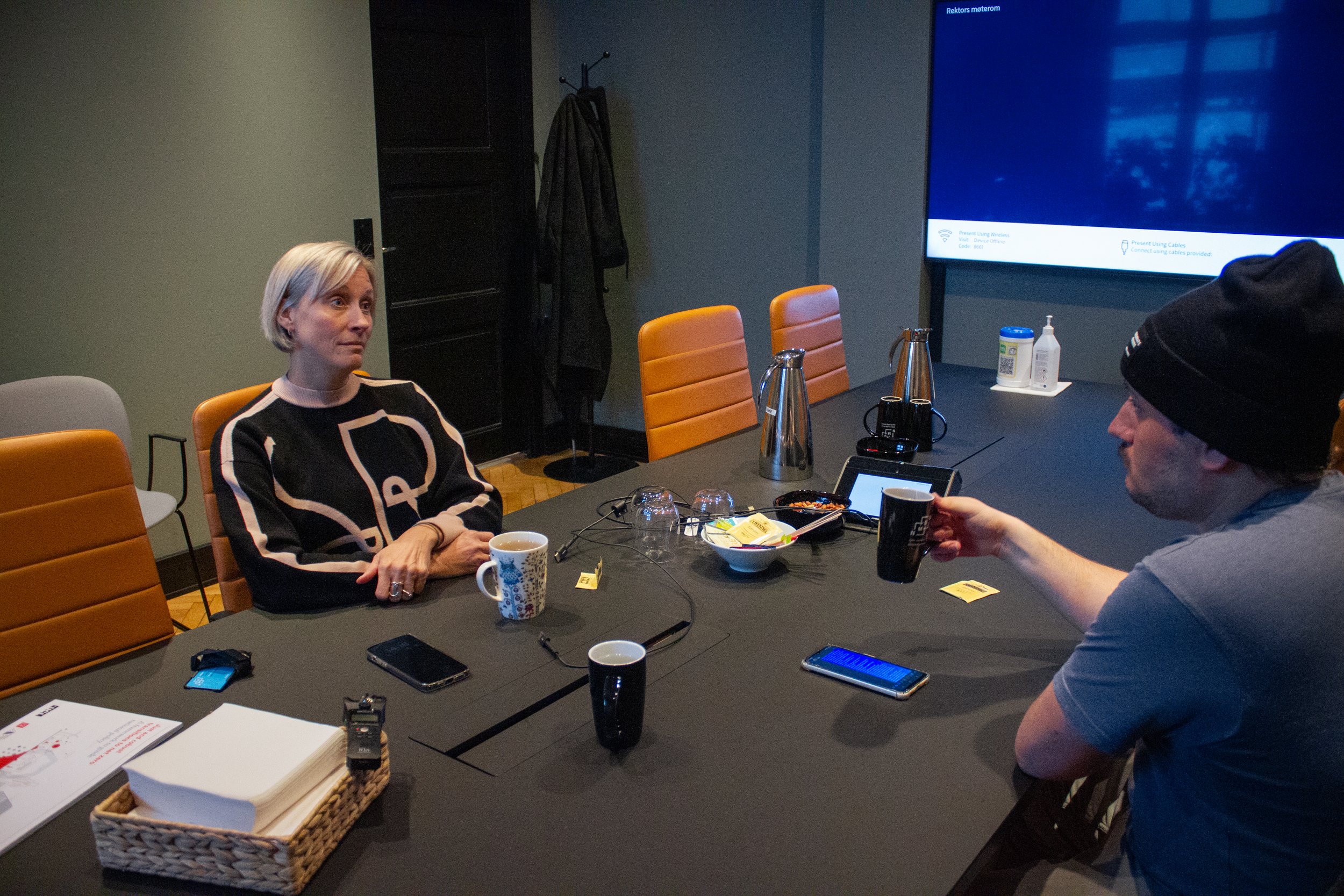The National Budget 2024

The National Budget 2024
- What does it mean for you?
A month ago, the government put forward a proposal of the national budget. However, what exactly is the National Budget and how does it affect you as a student?
Journalist: Tobias Waage Bremnes
Photographer: Tord Kristian F. Andersen og Håvard Røgeberg Magelssen
Tanslator: Natalie Nazareno
Web distributor: Martha Ingeborg Evensen
What is the National Budget?
The National Budget is an overview of the state’s income and expenditure. In the budget, one must prioritize what one should (and should not) spend money on. For example, the expenditure goes toward education, care for the elderly, defence and roads, while the state’s income comes from taxes, customs and duties, among other things.
It is the government that puts forward proposals for the National Budget, however, it is Stortinget (the Parliament) that decides what the money should be spent on. The governing parties, Arbeiderpartiet (the Labor Party) and Senterpartiet (the Centre Party), do not have majority in the Parliament alone, and are therefore dependent on support from other parties to get the budget approved by a majority. Sosialistisk Venstreparti (Socialist Left Party) is the party that the government usually negotiates with.
Student funding
In the government’s national budget, it is proposed to increase the student funding by 3.8 per cent. That means you will receive 472 NOK more per month. The increase is simply a price adjustment to reflect the increased prices of food, electricity, and rent. In other words, you will not be left with more money at the end of the month after all the expenses are paid for.
Student housing
In recent years, there have been long queues for student housing and high pressure on the private rental market. In total, 14,700 students in Norway were in line waiting for accommodation this year, with 202 of these students being offered student enrolment in Ås. Those who did not get housing through SiÅs were forced to either commute, live in SiÅs’ basement dormitory, or decline their letter of enrolment.
The government proposes to grant subsidies for 1,650 new student apartments in 2024, which is the same as what they did last year.Nevertheless, this item is reduced by more than 256 million NOK, which is equivalent to 32.2 per cent of the current grant. One can thus wonder how we are going to build the same amount of student housing as last year, with a significantly lower budget.
International students
It has previously been free for international students to study in Norway. However, tuition fees were introduced for international students in the last National Budget. This has led to a five-year education in Educational Studies at the University in Agder, in practice, costing just under 1.5 million kroners if you are from abroad. The introduction of tuition fees last year led to demonstrations at NMBU and across the rest of the country. Still, it does not look like anything is going to change this year.
In this National Budget, it is still intended that international students will pay school fees. Luckily for those who are against the introduction of tuition fees, the government proposes to introduce a scholarship scheme for students from developing countries (ODA recipient countries). Initially, this scheme will include up to 200 new master’s students per year.
Student welfare
There has been great focus on student welfare over the last years. Surveys like the SHoT survey have long shown that an increasing number of students are struggling with their mental health. Among other things, the surveys are showing that one in five students has considered taking their own life and that one in three students may have a mental disorder.
There has been great focus around student wellbeing here in Ås, especially due to cuts in the Health Centre’s services. There was great excitement about whether last year’s budget cuts would be reserved in this year’s budget, but to many people’s disappointment, the funding has not increased. Fortunately, there are some highlights in the budget. One of these is that the government proposes to invest in preventative measures related to drug and gambling addiction.
NMBU
The editors of Tuntreet asked rector Siri Fjellheim about her reaction to the National Budget and what consequences it will have for NMBU. In an e-mail to Tuntreet, Fjellheim writes that the proposed budget is not a gift for the university. In the National Budget, funding to NMBU is in fact being reduced by approximately 3.5 percent. The reason for the reduced funds is due to cutting 20 study places in Veterinary Medicine, among other things.
“This goes against previous decisions at Stortinget about the number of student places at the School of Veterinary Science, and we are really surprised by this. Thus, we hope that there will be changes in the final National Budget adopted by Stortinget, which will make things a little better,” writes Fjellheim.
She is also disappointed that programs such as the Centre for Outstanding Education (SFU) and the NORPART program, which is a program for international educational and research cooperation with the Global South, among others, is being phased out.
“NMBU is really concerned about the quality of education and research as well as international cooperation. Unfortunately, that is weakened in this budget proposal. There are of course areas in the budget that are good, including exciting community missions within research.”
The rector writes that, besides the student places in Veterinary Medicine, the budget does not pose any concerns for NMBU in the short term. Nevertheless, she is concerned that, in the longer term, there will be weaker incentives for the sector to prioritise pioneering foundational research, research-based education and international cooperation, which are all important for NMBU.
